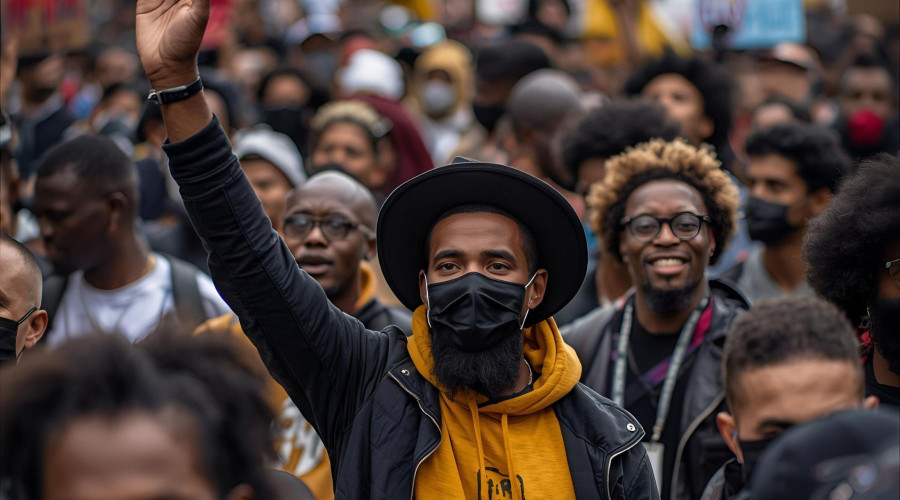Beneath the language of “safe borders,” “cyber resilience,” and “combating hate,” many experts and civil rights advocates see a troubling pattern of expansion of power at the expense of privacy and transparency.
Together, these proposed bills reveal a broader shift in how the federal government is approaching surveillance, dissent, and public accountability. Each bill redefines the relationship between citizens and the government in various ways.
This article explores the most prominent sections of these bills, why they matter, and how they may uniquely affect Black Canadians and other marginalized communities that have long been over-policed and under-protected by Canadian institutions.
What is Bill C-2 (and C-12)? Strong Borders Act
Originally introduced as the Strong Borders Act, Bill C-2 was a substantial proposal to expand the federal government’s surveillance, border, and data access powers. It sought to amend multiple pieces of existing legislation, including the Criminal Code, Customs Act, and Proceeds of Crime (Money Laundering) and Terrorist Financing Act, to make it easier for the government and its agencies to collect and share information.
Among its most controversial sections was Part 4 which proposed to expand Canada Post’s authority to open mail in certain situations. Perhaps even more troubling are parts 14 and 15, which would have allowed authorities to demand access to digital and subscriber information from telecommunication providers (such as Rogers, Bell, and Telus) without a warrant. This would force providers to provide information to the government through alternate hidden channels.
Privacy experts and legal scholars have warned that these measures would violate the Charter of Rights and Freedoms and contradicted well-established common law. After widespread backlash from privacy advocates, political opponents, and the public, parliament withdrew the warrantless surveillance powers and split the bill into two parts.
In an attempt to speed up the process, the Liberal party introduced Bill C-12. The new bill focused on immigration and border security, giving ministers broad discretionary powers to suspend or cancel visas and refugee claims “in the public interest.”
Critics argued that the government merely repackaged C-2’s most problematic elements into bill C-12, allowing controversial enforcement measures to advance under a new name. While the future of bill C-2 is unknown and seems stagnant, advocates are shifting their focus to bill C-12.
What is Bill C-8? An Act Respecting Cybersecurity
Bill C-8 (formerly Bill C-26) is part of the federal government’s effort to strengthen Canada’s cybersecurity framework but like Bills C-2 and C-12, it has sparked major concerns about privacy and civil liberties.
The proposed legislation would give the government sweeping powers to secretly order telecommunications companies to take actions such as cutting off service to individuals and organizations or installing surveillance “backdoors” into encrypted networks in the name of national security. Experts warn that these backdoors could create vulnerabilities in Canadian communication systems rather than strengthen them.
The proposed bill would allow such orders to remain secret indefinitely, even prohibiting those affected from speaking about them. Individuals who violate the secrecy provisions could face fines of up to $25,000 for a first offence and $50,000 for subsequent ones, with little recourse other than a lengthy and costly judicial review process.
The Canadian Constitution Foundation (CCF) has warned that these powers could be used to silence political dissent under the guise of national security.
CCF counsel Josh Dehaas described the power to disconnect Canadians from essential communication services as “a very serious power that requires very strong safeguards.” Other groups echo these warnings.
The Canadian Civil Liberties Association (CCLA) argues that true cybersecurity should protect Canadians’ privacy, not weaken it by granting the government unchecked powers.
What is Bill C-9? Combatting Hate Act
Bill C-9, officially titled An Act to amend the Criminal Code (hate propaganda, hate crime and access to religious or cultural places), aims to combat hate and protect Canadians from intimidation near spaces of worship and community gathering.
The bill would make it a criminal offence to use or display symbols linked to groups designated by the government as terrorist organizations, and to engage in conduct intended to provoke fear or impede access to religious, cultural, or community facilities such as churches, mosques, daycares, schools, senior homes, or cemeteries.
While the government describes the bill as a step toward safety and inclusion, and while it seems to do just that on its surface, civil society groups warn it may do the opposite.
Critics argue that Bill C-9’s vague definitions of “intimidation” and “hate symbols” give law enforcement broad discretion that could criminalize peaceful protest, dissent, and free expression; rights protected by the Charter.
A coalition of 37 civil society groups, including the Black Legal Action Centre (BLAC), has urged Parliament to amend or withdraw the bill, stressing that its broad language risks disproportionate harm to the very communities it seeks to protect.
The CCLA cautioned that bill C-9 could suppress constitutionally protected protests near “tens of thousands of locations” and that removing the Attorney General’s oversight from hate-propaganda prosecutions (which would be the case under the current draft of bill C-9) could lead to arbitrary or biased enforcement, particularly against racialized and marginalized groups as said groups have historically been major targets of surveillance and policing.
The Bigger Picture: Why These Bills Raise Concerns for Black Canadians
Bills C-2 (and its successor C-12), C-8, and C-9 all share a common thread: granting the federal government and law enforcement agencies new discretionary powers with limited oversight and public transparency.
While each bill may be framed as addressing legitimate concerns (such as border integrity, cybersecurity threats, and hate-motivated crime), their combined effect could erode Charter rights and deepen systemic inequalities.
For Black Canadians and other racialized groups, these bills risk reinforcing the already disproportionate level of surveillance and criminalization they face. True national security cannot exist without public trust, governmental accountability, and the protection of civil liberties.




